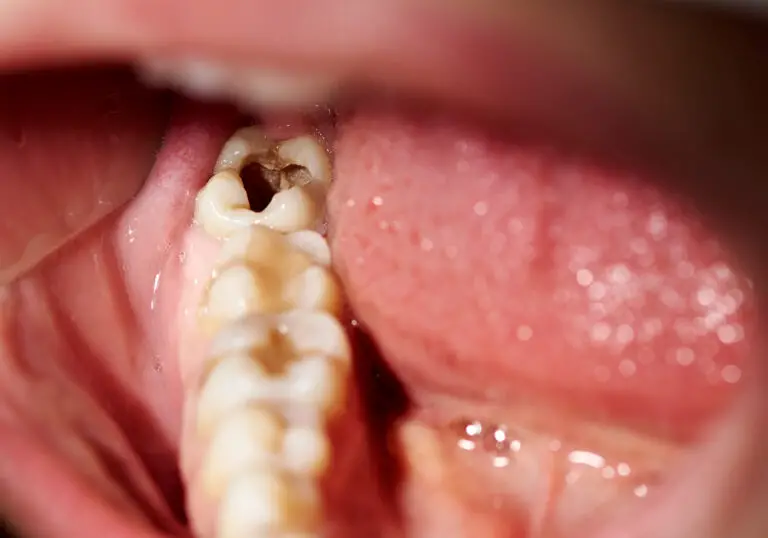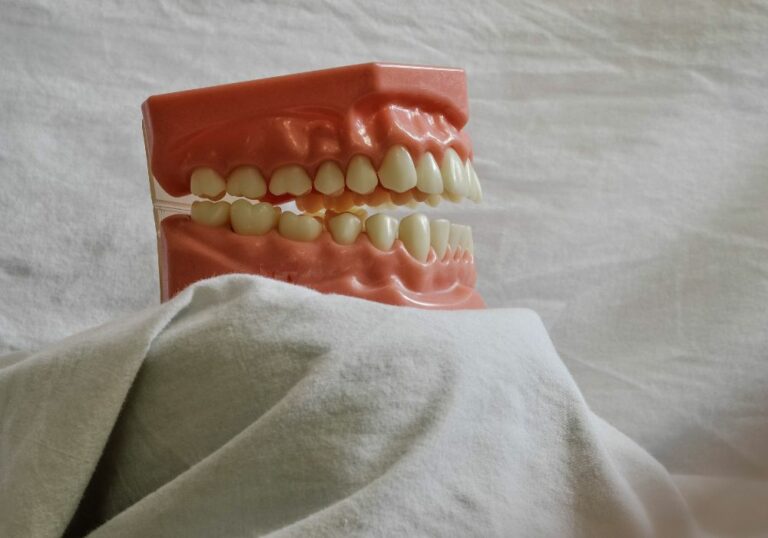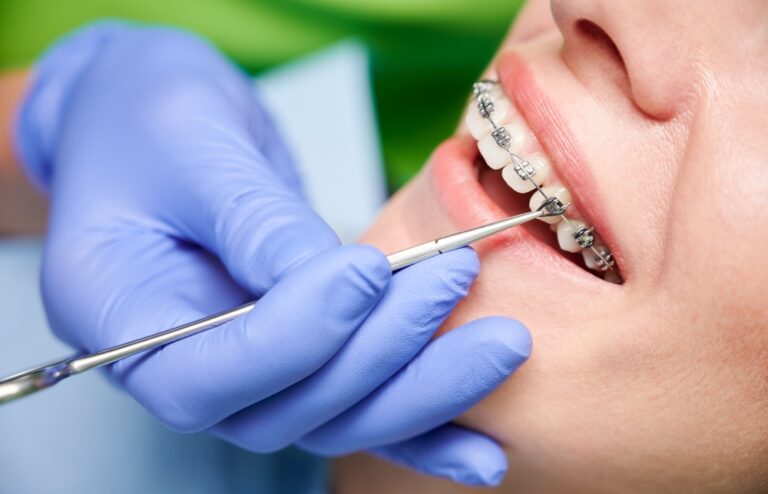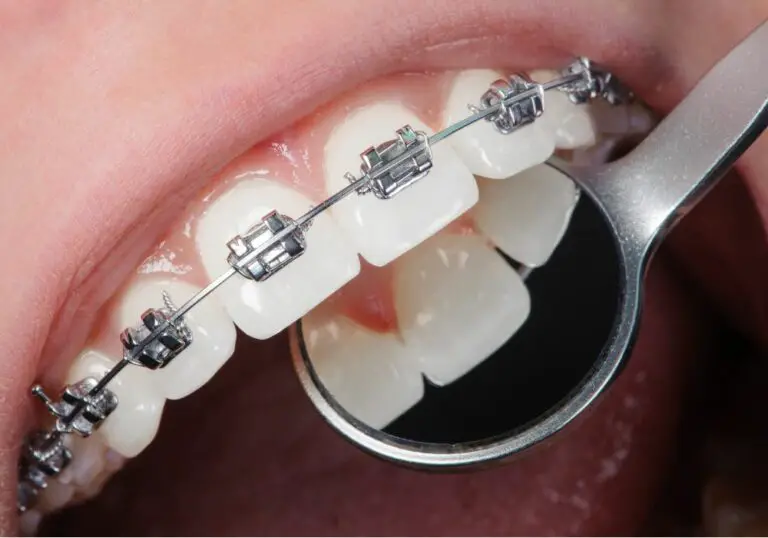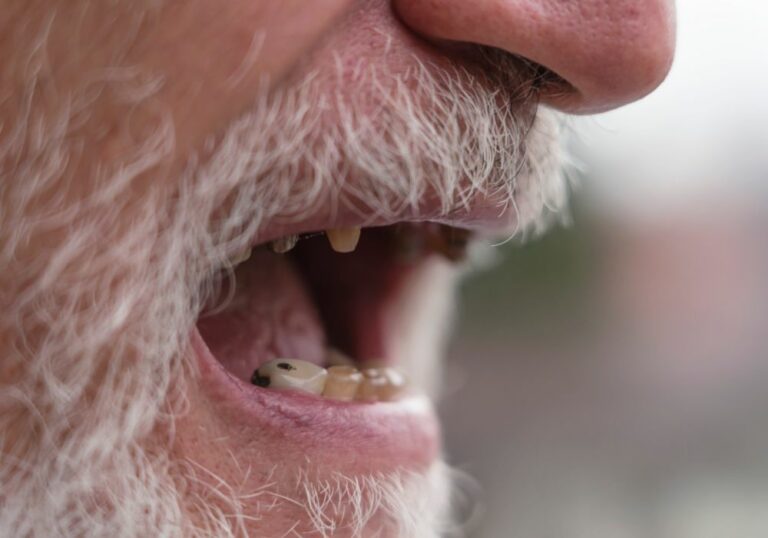If you’re experiencing pain or discomfort in the back of your mouth, it’s possible that your wisdom teeth are causing the issue. Wisdom teeth are the third set of molars that typically emerge in your late teens or early twenties, but they don’t always grow in correctly. When they don’t, they can cause pain, swelling, infection, and other problems.
If you’re dealing with problematic wisdom teeth, you may be wondering if you can have them removed at your regular dentist’s office. While not all dentists perform wisdom teeth extractions, many do. In fact, some dentists will recommend that you have your wisdom teeth removed even if they aren’t currently causing issues, as a preventive measure. However, if your wisdom teeth are impacted or otherwise complicated, your dentist may refer you to an oral surgeon for the procedure.
Understanding Wisdom Teeth
Wisdom teeth, also known as third molars, are the last set of teeth to emerge in your mouth. They usually grow in between the ages of 17 and 25, and most people have four wisdom teeth. However, some people may have fewer or more, and some may not have any at all.
Wisdom teeth are located at the back of your mouth and are the largest teeth in your mouth. They are designed to help you chew tough foods like meat and raw vegetables. However, in most cases, they are not necessary for proper chewing and can cause problems if they do not grow in properly.
Wisdom teeth can cause a range of problems, including pain, infection, and damage to adjacent teeth. This is because they often grow in at an angle, pushing against other teeth and causing crowding. In some cases, wisdom teeth may not emerge fully, which can lead to an increased risk of infection and decay.
If you are experiencing pain or discomfort in your wisdom teeth, it is important to see a dentist as soon as possible. Your dentist will be able to assess your teeth and determine whether they need to be removed.
In some cases, your dentist may be able to remove your wisdom teeth in their office. However, if your teeth are impacted or if you have other dental problems, you may need to see an oral surgeon for removal. Your dentist will be able to advise you on the best course of action based on your individual needs.
The Role of a Dentist in Wisdom Teeth Removal
If you’re experiencing discomfort or pain in your mouth, your dentist may recommend that your wisdom teeth be removed. Wisdom teeth are the third molars at the back of your mouth, and they can cause problems if they become impacted or don’t have enough room to grow. In some cases, your dentist may be able to remove your wisdom teeth in their office.
Before your wisdom teeth are removed, your dentist will perform a thorough examination of your mouth and take X-rays to determine the position of your teeth. If your wisdom teeth are impacted or causing problems, your dentist may recommend that they be removed.
During the procedure, your dentist will numb the area around your wisdom teeth and use special tools to loosen and remove the teeth. In some cases, your dentist may need to make incisions in your gums to access the teeth.
After the procedure, your dentist will provide you with instructions on how to care for your mouth as you heal. This may include avoiding certain foods, taking pain medication, and using ice packs to reduce swelling.
It’s important to follow your dentist’s instructions closely to ensure a smooth recovery. If you experience any complications or have concerns about your healing process, be sure to contact your dentist right away.
Overall, your dentist plays an important role in the removal of your wisdom teeth. They will work with you to determine if the procedure is necessary and will provide you with expert care throughout the process.
Preparation for Wisdom Teeth Extraction
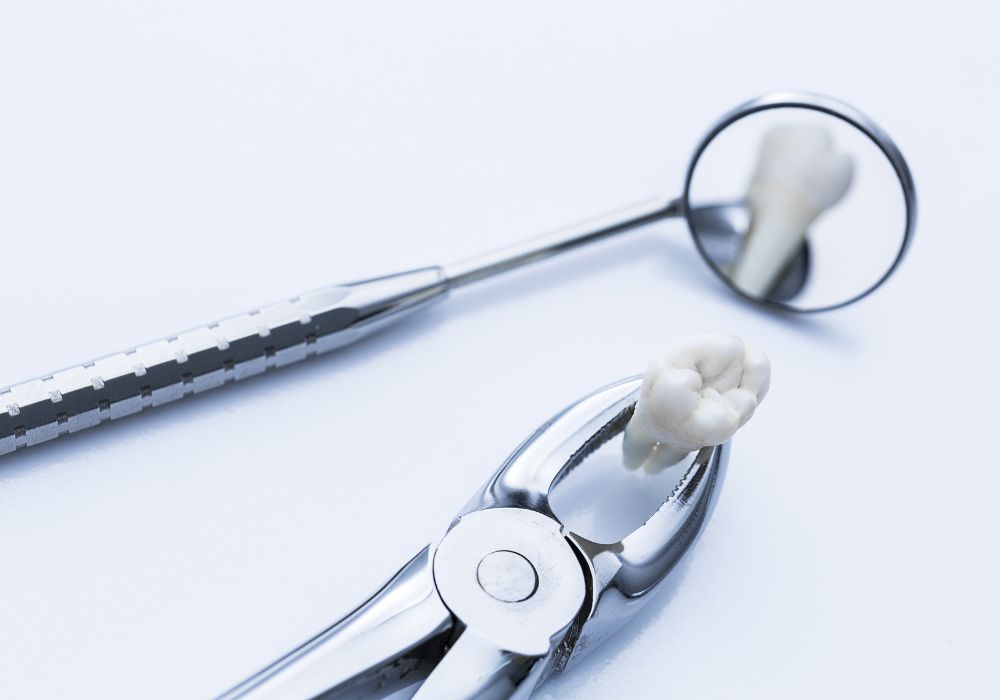
If you need to have your wisdom teeth removed, it is important to properly prepare for the procedure. This will help ensure a smooth and successful surgery, as well as a speedy recovery. Here are some things to keep in mind as you prepare for your wisdom teeth extraction.
Initial Consultation
Before scheduling your wisdom teeth extraction, you will need to have an initial consultation with your dentist. During this appointment, your dentist will examine your teeth and gums, take X-rays, and discuss the procedure with you.
This is also the time to ask any questions you may have about the procedure, such as what type of anesthesia will be used, how long the surgery will take, and what you can expect during the recovery process.
Pre-Surgery Instructions
In the days leading up to your wisdom teeth extraction, there are several things you should do to prepare yourself for the procedure. Here are some pre-surgery instructions to follow:
- Arrange for someone to drive you to and from the appointment, as you will not be able to drive yourself home after the procedure.
- Wear comfortable, loose-fitting clothing on the day of the surgery.
- Do not eat or drink anything for at least 8 hours before the procedure.
- Take any prescribed medications as directed by your dentist.
- Brush and floss your teeth thoroughly before the procedure.
- Avoid smoking or using tobacco products for at least 24 hours before the procedure.
- If you have any concerns or questions before the surgery, be sure to contact your dentist for guidance.
By following these pre-surgery instructions, you can help ensure that your wisdom teeth extraction goes smoothly and that you have a comfortable and speedy recovery.
The Extraction Process
If your dentist has recommended that you have your wisdom teeth removed, you may be wondering what the extraction process entails. Here’s what you can expect during the procedure.
Anesthesia Options
Before the procedure begins, your dentist will discuss anesthesia options with you. There are three main types of anesthesia that may be used during wisdom tooth extraction:
- Local anesthesia: This is the most common type of anesthesia used during wisdom tooth extraction. Your dentist will inject a numbing agent into the area surrounding the tooth, which will numb your mouth and prevent you from feeling any pain during the procedure.
- Nitrous oxide: Also known as laughing gas, this type of anesthesia is inhaled through a mask. Nitrous oxide will help you relax and reduce anxiety during the procedure.
- IV sedation: This type of anesthesia is administered through an IV and will make you feel drowsy and relaxed during the procedure.
Your dentist will help you determine which type of anesthesia is best for you based on your individual needs and preferences.
The Surgical Procedure
Once you are under anesthesia, your dentist will begin the surgical procedure. The exact steps of the procedure may vary depending on the position of your wisdom teeth and how many teeth are being removed.
Generally, the procedure involves the following steps:
- Your dentist will make an incision in the gum tissue to expose the tooth and the surrounding bone.
- Any bone blocking access to the tooth will be removed.
- The tooth will be extracted either in one piece or in several pieces, depending on its position.
- Any remaining debris will be removed from the socket.
- The incision will be closed with stitches.
After the procedure is complete, you will be monitored in the recovery room until the effects of the anesthesia wear off. Your dentist will provide you with instructions on how to care for your mouth after the procedure, including tips on managing pain and swelling and when to resume normal activities.
Post-Extraction Care
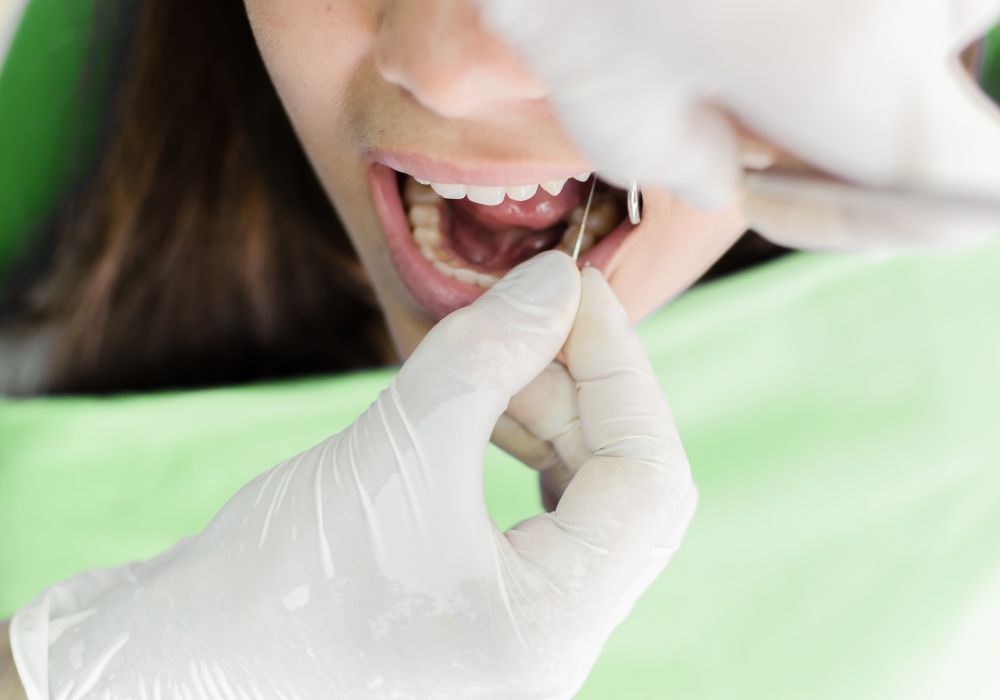
After you have your wisdom teeth removed, it’s important to take proper care of your mouth to ensure a smooth and speedy recovery. This section will provide you with some tips on how to care for your mouth after wisdom teeth extraction.
Immediate Aftercare
Immediately following the extraction, your dentist will give you some gauze to bite down on to help stop the bleeding. You should keep this gauze in place for at least 30 minutes, or until the bleeding stops. If the bleeding persists, replace the gauze with a new one and continue to bite down.
Once the bleeding has stopped, you should avoid rinsing your mouth, spitting, or drinking through a straw for the first 24 hours after the extraction. This can help prevent the blood clot from dislodging, which can lead to a painful condition called dry socket.
You should also avoid smoking or using tobacco products for at least 24 hours after the extraction, as this can also increase your risk of developing dry socket.
Long-Term Healing
After the first 24 hours, you can begin gently rinsing your mouth with warm salt water. This can help keep the extraction site clean and promote healing.
You should also continue to avoid smoking and using tobacco products for at least a week after the extraction, as this can slow down the healing process.
It’s important to eat soft foods for the first few days after the extraction, and to avoid hard, crunchy, or spicy foods that can irritate the extraction site. You can gradually start to reintroduce solid foods as your mouth begins to heal.
If you experience any pain or swelling after the extraction, you can apply an ice pack to your cheek for 10-20 minutes at a time. Over-the-counter pain relievers like ibuprofen or acetaminophen can also help alleviate any discomfort.
By following these post-extraction care tips, you can help ensure a smooth and speedy recovery after your wisdom teeth extraction.
Possible Complications and How to Handle Them
When it comes to wisdom teeth removal, there are a few possible complications that can arise. While most people recover without issue, it’s important to be aware of these potential problems so that you can recognize them and seek treatment if necessary.
Dry Socket
One of the most common complications of wisdom teeth removal is dry socket. This occurs when the blood clot that forms in the socket where the tooth was removed becomes dislodged or dissolves before the wound has had a chance to heal. This can cause severe pain, bad breath, and an unpleasant taste in your mouth.
To prevent dry socket, avoid smoking, using a straw, or spitting for at least 24 hours after your surgery. You should also follow your dentist’s instructions for caring for the wound, which may include rinsing your mouth with salt water or using a medicated mouthwash.
If you do develop dry socket, your dentist can treat it with a medicated dressing that will help relieve the pain and promote healing.
Infection
Another possible complication of wisdom teeth removal is infection. This can occur if bacteria enter the wound and cause an infection. Symptoms of infection may include fever, swelling, pain, and discharge from the wound.
To prevent infection, it’s important to keep the wound clean and follow your dentist’s instructions for caring for it. This may include rinsing your mouth with salt water or using a medicated mouthwash. You should also avoid touching the wound with your fingers or tongue.
If you do develop an infection, your dentist may prescribe antibiotics to help clear it up. In some cases, you may need to have the wound drained or the tooth socket cleaned out to remove any bacteria.
Cost and Insurance Coverage for Wisdom Teeth Removal
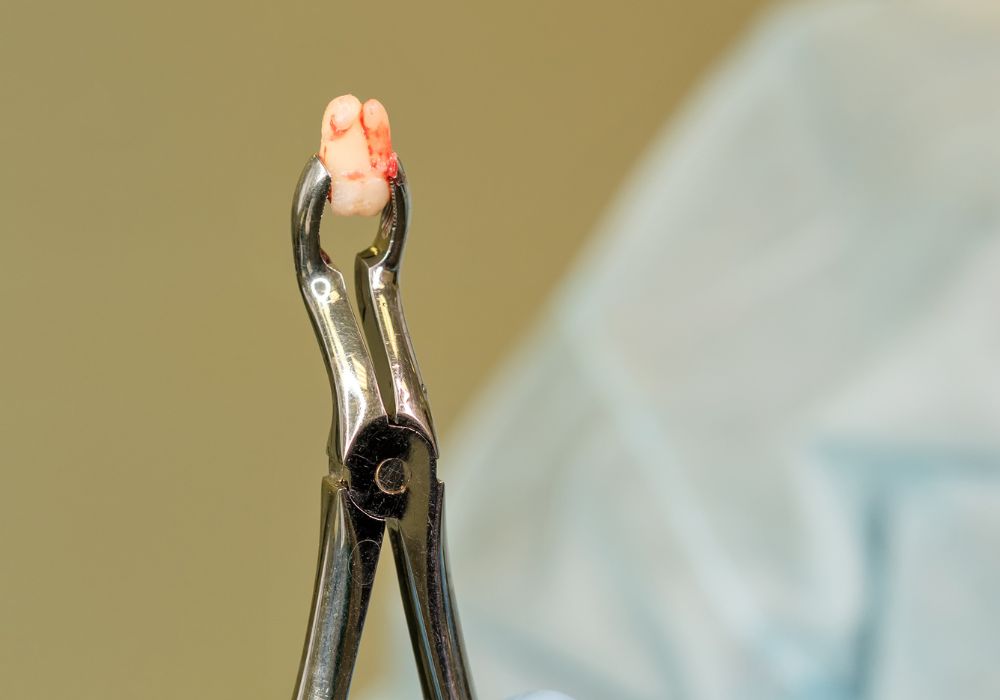
Wisdom teeth removal can be a costly procedure, and the cost can vary depending on several factors. The cost can range from $250 to $4,000 per tooth. The average cost of removing a wisdom tooth without insurance is about $720. However, the cost can be significantly lower or higher depending on the specifics of the procedure.
If you have dental insurance, the cost of wisdom teeth removal may be partially or fully covered. In general, most dental insurance plans cover about 50% to 80% of the total cost of the procedure. However, the specific coverage and out-of-pocket expenses will depend on the individual plan and the specific circumstances of the procedure.
It’s important to note that not all dental insurance plans cover wisdom teeth removal, and some plans may have limitations or exclusions. It’s best to check with your dental insurance provider to understand your specific coverage and any potential out-of-pocket expenses.
If you do not have dental insurance, there are still options to make the procedure more affordable. Many dental providers offer payment plans or financing options to help spread out the cost of the procedure over time. Additionally, some dental clinics may offer discounted rates for uninsured patients or those paying out of pocket.
Overall, the cost of wisdom teeth removal can be a significant financial burden, but with the right insurance coverage or financing options, it can be a manageable expense. Be sure to consult with your dental provider and insurance company to understand your specific coverage and any potential out-of-pocket expenses.
Frequently Asked Questions
How long does it typically take to remove wisdom teeth?
The length of time it takes to remove wisdom teeth can vary depending on the complexity of the extraction. Generally, the procedure takes around 45 minutes to an hour. However, it can take longer if the teeth are impacted or if there are complications during the procedure.
What are some tips for recovering from wisdom teeth removal?
After the procedure, it is important to rest and avoid any strenuous activity for at least 24 hours. You should also avoid smoking, drinking through a straw, or eating hard or crunchy foods for the first few days. It is recommended to stick to soft foods and to drink plenty of fluids. Applying an ice pack to your cheeks can help reduce swelling and discomfort.
What is the recovery time for horizontally impacted wisdom teeth removal?
Recovery time for horizontally impacted wisdom teeth removal can vary depending on the individual and the complexity of the extraction. In general, it can take up to two weeks for the swelling and discomfort to fully subside. During this time, it is important to follow your dentist’s instructions for post-operative care.
What type of dentist is qualified to remove wisdom teeth?
Oral surgeons and dentists who have received additional training in oral surgery are qualified to remove wisdom teeth. Your regular dentist may also be qualified to perform the procedure, depending on their level of training and experience.
Is it safe for a regular dentist to remove wisdom teeth?
Yes, it is safe for a qualified dentist to remove wisdom teeth. However, if the extraction is complex or if there are complications during the procedure, your dentist may refer you to an oral surgeon.
Can wisdom teeth be removed during a single dental visit?
Yes, it is possible for wisdom teeth to be removed during a single dental visit. However, the length of the appointment will depend on the complexity of the extraction. Your dentist will be able to give you an estimate of how long the procedure will take during your consultation.

